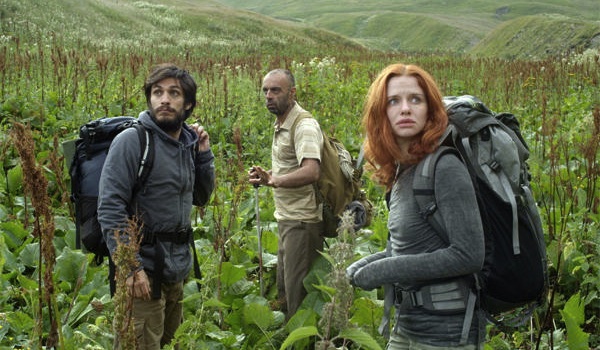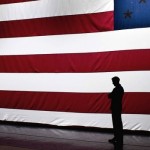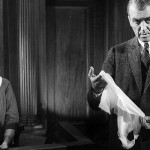The Loneliest Planet Review
There’s a moment near the midpoint of Julia Loktev’s The Loneliest Planet that turns a happy couple into a doubtful one. It changes an adventurous trek through the beautiful mountains of Georgia into a desolate, fearful, and truly hellish journey home. And it transforms a good-looking, unsetting film into something as complex, harrowing, and borderline brilliant. It’s a bit of a slog with very little dialogue, but it’s the kind of film that will get under your skin and stay there.
The couple in question is Alex (Gael Garcia Bernal) and Nica (Hani Furstenberg). They’re engaged and in the middle of a grueling backpacking trip when we join them (in a startling way, it should be noted). Their guide is Dato (Bidzina Gujabidze), a native Georgian with a good sense of humor.
The landscape is the star of the film’s first half, as these three move over diverse and dangerous terrain. The film is so methodical that any experienced movie watcher knows a turn is on its way. Every creek they cross is a threat. Every rock formation spells doom. Even the enigmatic Dato will unsettle you.
This sense of dread is only enhanced by Loktev’s incredible sound design and editing style. The film falls into this interesting rhythm wherein Loktev plants her camera a great distance away from her three actors while the disquieting, almost angry score blares loudly. They walk from one side of the frame to the other—each character traveling at varying degrees of meaningful distance from the others—and once (sometimes before) that small piece of the trek is complete, a smash cut brings the music to an end and these three individuals into extreme close-up. It’s the kind of technique that’s hard not to notice, and it definitely keeps you on your toes. Loktev does something similar with darkness and light—cutting dramatically from a shot of the Georgian wilderness at twilight to a blindingly bright morning on the mountain. I’ve said The Loneliest Planet is slow, and it is, but it’s certainly not boring. If nothing else does, at least Loktev’s style will ensure you’re consistently engaged.
After the film’s inciting incident, it actually proceeds at an even slower pace—or at least it feels that way. There are fewer smiles, next to no dialogue, and a whole lot less fun. But these actors don’t need to be verbally engaging with one another to speak profoundly to their audience. Furstenberg’s noticeably missing smile, the uncomfortable way Garcia Bernal keeps his hands, and again, the purposeful and meaningful distance at which they walk say more than words.
The film limps along during its final 20 minutes, but the sense of hopelessness present is enough to form a pit in your stomach, so don’t go in expecting a good time. However, the director’s approach is incredibly unique and thoughtful, which alone makes The Loneliest Planet a must-see for the adventurous cinephile. But style in service is strong, salient themes makes it worthy of year’s-best consideration.
















